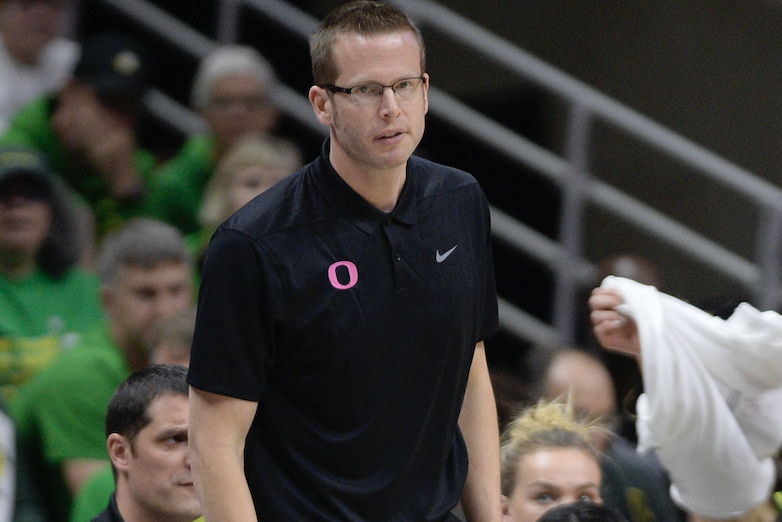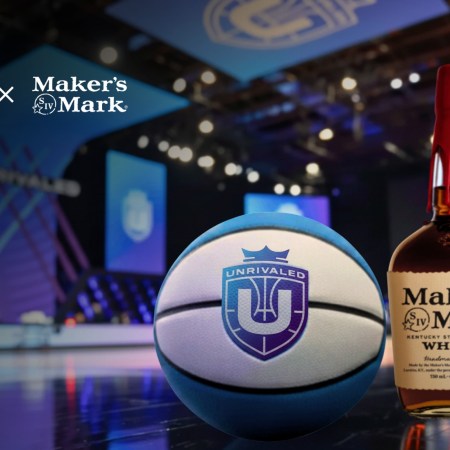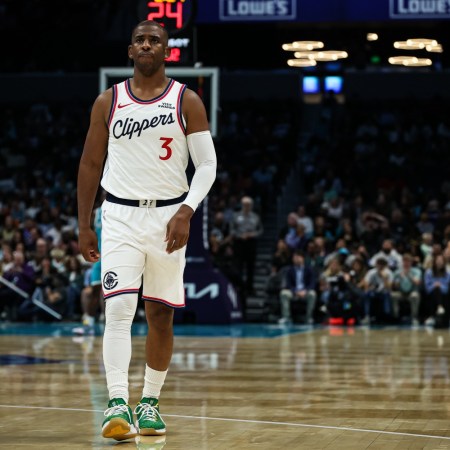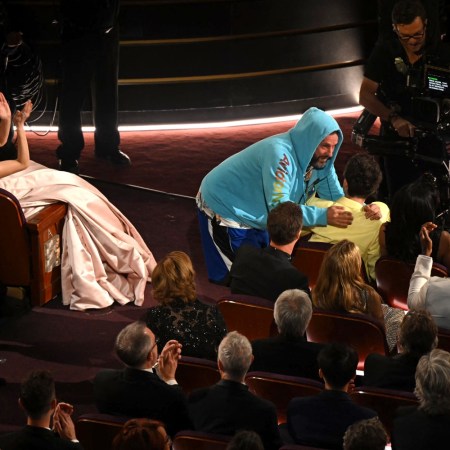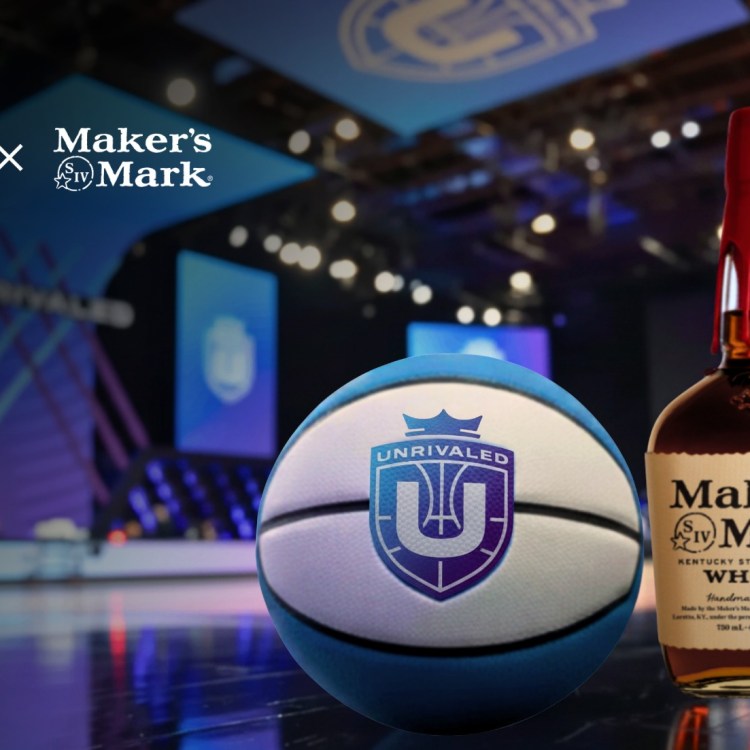After compiling a 31-2 record that was topped off with a Pac-12 Tournament championship, the Oregon women’s basketball team saw a triumphant season cut short by the madness that COVID-19 caused last March. As a result, the Ducks were never granted the chance to find out if senior guard Sabrina Ionescu, who averaged 17.5 points, 8.6 rebounds and 9.1 last season and was the No. 1 pick in last April’s WNBA Draft, would be able to lead Oregon back to the Final Four and a shot at the program’s first championship.
Though it was no fault of her own, it was a disappointing end to a brilliant collegiate career for Ionescu, as well as for the coach who recruited her, Mark Campbell.
An associate coach under Ducks head coach Kelly Graves, Campbell is the team’s lead recruiter, and was relentless in his pursuit of Ionescu — the first player in NCAA history to surpass 2,000 career points, 1,000 rebounds and 1,000 assists — before she committed to Oregon ahead of the 2016-17 season in the spring of her senior year in high school.
“When she was playing travel ball on the Nike circuit during her senior and junior year, we didn’t miss a game. That’s probably 60-70 games that we were sitting at mid-court for Sabrina,” Campbell tells InsideHook. “We knew in order to land Sabrina with where our program was, we had to be front and center at every event to prove how all-in we were to earn the right to sign her. We weren’t a top-25 program and we hadn’t even played in the NCAA tournament. We couldn’t take the angle to sell the pros that we’d developed. We didn’t have that. She picked us because of nothing other than she trusted that we were going to take care of her and build something special around her.”
Ionescu’s trust in Campbell and the Oregon program was buoyed with a combination of text messages and phone calls, but it was truly built on in-person interactions. Those interactions, which Campbell refers to as “everything,” haven’t been possible in the last year thanks to the NCAA’s Division I Council instituting a “dead period” banning in-person recruiting activities when the pandemic hit last spring.
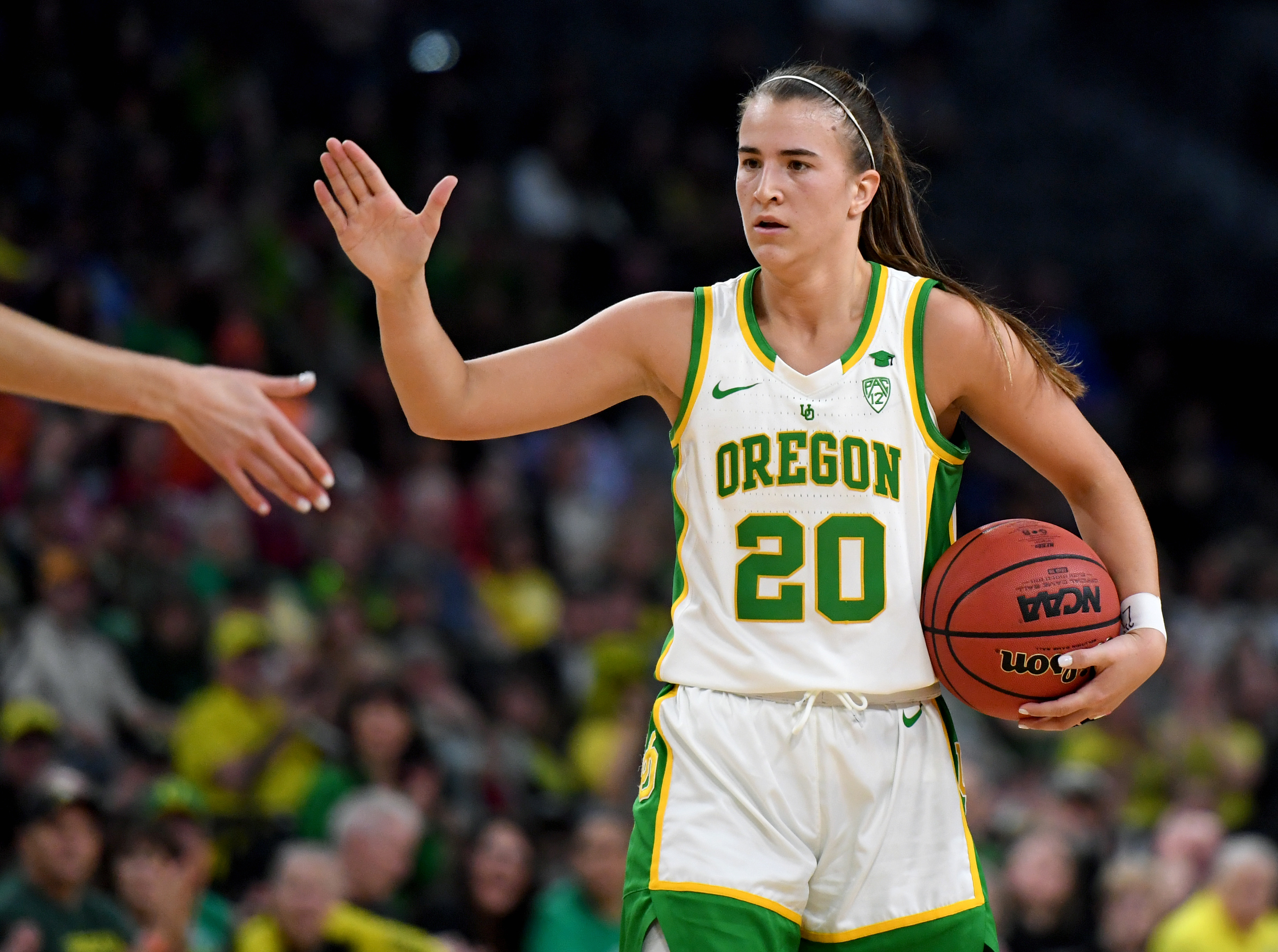
“It has completely changed the recruiting landscape, because you don’t have that in-person connection and you don’t get to evaluate in person, which is a huge part of figuring out who the players are,” Campbell says. “You don’t get to see their body language. You don’t get to hear their communication skills. It’s a two-way street. It’s incredibly difficult to evaluate everything on Zoom or via the internet. It’s hard to tell how tall or athletic someone is on video. And then they don’t get to see who’s front and center at their games. We’re all in uncharted territory because of that.”
And with the NCAA’s dead period remaining in effect until at least June, Campbell and other college recruiters will remain trapped in that territory for the foreseeable future.
“It’s forcing college coaches, at all levels, to make educated guesses on their player evaluation. That could mean some big schools misevaluate some of their talents and some smaller schools may end up getting some elite players,” Campbell says. “Another huge component now because of the dead period is nobody gets to come to your campus. So kids are trying to make a decision about where to spend the next four years without getting to see the campus. I think schools that are in bigger cities have an advantage to kids that are within driving distance versus schools that are in college towns, and don’t have as much talent within driving distance. Does that mean kids are going to stay a little more regional? I don’t know. Should we focus our recruiting efforts more regionally? Nobody knows. We’re just trying to be flexible and fluid and survive this fate.”
Thanks to the timeline of how far in advance recruiting usually takes place at most schools, the full extent of that fate won’t be known for a couple of seasons, according to Campbell.
“You’re operating years ahead in the recruiting game. So it’s this upcoming group of players, the November signing period, that is getting impacted,” he says. “We didn’t get to go to their high school games or their spring events that are coming up. Hopefully, we get to go to their summer games. It really impacts these young people who are trying to make a very important life decision. Now, they’re trying to do that with limited knowledge. On the flip side, it impacts college coaches who are trying to develop relationships and get to know the kids and the families and figure out if they’re a right fit for the program. It’s just a hard, difficult situation for everybody. It’s already been a full 12-month cycle that we’ve been in this, and it’ll take a while to truly understand how the impact is going to unfold.”
The Charge will help you move better, think clearer and stay in the game longer. Subscribe to our wellness newsletter today.
